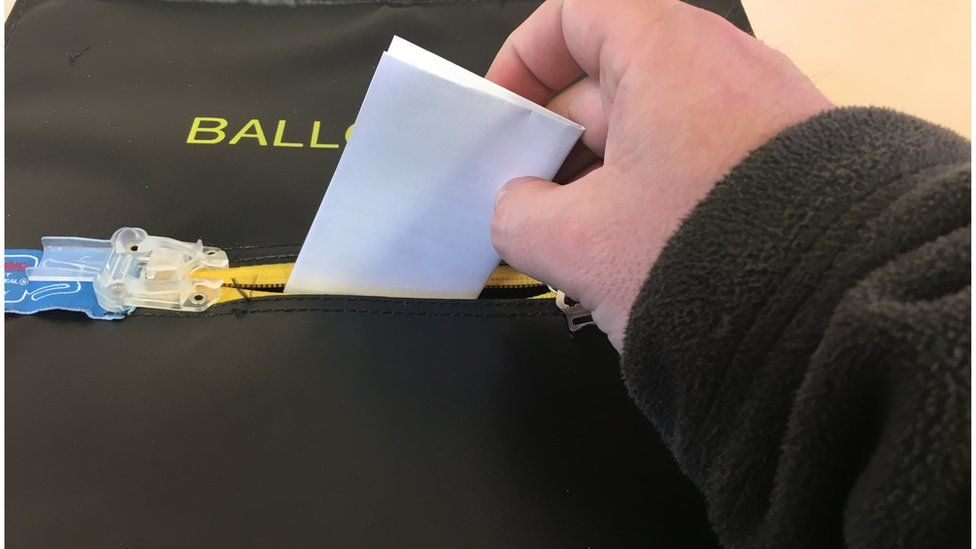Snap election raises concerns for non-party campaigners
- Published

Charities and other campaign groups fear they could be gagged by red tape during the general election campaign.
Groups like Greenpeace like to make their voice heard during elections.
But they face strict rules on what they can spend money on for the year before an election.
They had been working on the basis that an election would be held in 2020 - but the announcement of a snap election in June has raised concerns they will not be able to comply with the rules.
This has meant that they will have to declare their spending retrospectively over the last year if they want to campaign, creating a huge amount of work at short notice.
The Electoral Commission says registered "non-party" campaign groups must provide information on all their "regulated campaign activity," money spent and donations for the 12 months between 9 June 2016 and 8 June's polling day.
But campaigners argue that the rules on what counts as party political campaigning - which is banned by lobbying legislation - and campaigning about issues, which is allowed, are vague and confusing.
'Democratic car crash'
And they are angry that their campaigning activities over the past 10 months will now come under scrutiny when they had no idea an election was going to be called.
Some charities may opt to sit the general election out rather than face dealing with the extra red tape or risk being fined - meaning their point of view will go unheard, they warn.
Chief executive of charity leader's network ACEVO, Vicky Browning, said: "The Electoral Commission's guidance demonstrates the need for urgent reform of the Lobbying Act.
Charities have carried out their day-to-day campaigning activity for the last 10 months, reassured by the Fixed-term Parliaments Act that their activity would not fall under the auspice of the Electoral Commission.
"To have this decision reversed with minimal notice places a huge retrospective administrative burden on these charities, as they seek to understand their legal obligations.
"There is a real danger that this decision will hamper charity campaigning over the crucial coming weeks."
Greenpeace UK executive director John Sauven said: "The government's own review acknowledged that the legislation had a chilling effect in the 2015 election by "frightening charities away from raising important issues".
"In this snap election, the impact on civil society could be even bigger as charities will have had no time to plan how to work within this complex bureaucracy," he said.
"The Lobbying Act is a democratic car crash. This should be the last election contested under the shadow of this failed law."
'Significant money'
Greenpeace was fined £30,000 for breaching lobbying rules earlier this year, when it refused to register as a non-party campaigner.
Lord Hodgson, who chaired a 2016 government review into the Transparency of Lobbying, Non-party Campaigning and Trade Union Administration Act 2014, said that two of his recommendations might have had an impact on this situation.
He proposed a reduced four month regulated period for general elections, to bring the law in line with elections to the devolved legislatures and to the European Parliament.
"This was intended to reflect more closely the time when the general public were likely to be influenced in their voting intention," he said.
He also proposed that the regulatory period in the event of an "unexpected" general election be clarified, as the current provisions were excessively complicated.
"While nothing can now be done about the first of these two recommendations I very much hope the Electoral Commission, which broadly accepted the conclusions of my report, will bear the second very much in mind as the general election gets underway."
A spokesman for the Electoral Commission said: "Non-party campaigners are vital to a healthy democracy and the Electoral Commission encourages their active participation in the campaign period ahead of the general election.
"Where a significant amount of money is being spent on campaigning, it's right that voters can see whose spending that money and what outcome they are campaigning for."
A spokeswoman for the Cabinet Office said: "As we're in the pre-election period it would be inappropriate for us to comment on or respond to this story."